SUMMARY
This is AI generated summarization, which may have errors. For context, always refer to the full article.
![[OPINION] Martial Law and media repression, a collective memory](https://www.rappler.com/tachyon/2022/09/collective-memory-martial-law.jpg)
When we hear of Marcos Sr.’s Martial Law, we are haunted by the voices demanding to never forget. What happened must remain engraved in our collective memory so that we are not doomed to repeat it. However, we still seem to be at the onset of a repetition with the dictator’s son as president. How can this be when we’ve been told to never forget? Perhaps because memory can be played with; it can be twisted or fade completely. Memory alone cannot be purely truthful – this is how the collective memory was pervaded by Marcos myth and propaganda.
While this may paint a corrupt image of the media, news reports and other documents, truthful ones are also what helps keep the real collective memory of Martial Law alive. It would be difficult for any of us, especially those who weren’t alive then to be factual and well-informed, if no media reports about the atrocities were made.
We already know that the truth is hard to find amidst all the noise and lies, but it exists in those who experienced it and the documentation of these collective experiences.
The authors of this article are from different generations – four or even five generations apart – but we have a shared memory of Martial Law and media repression.
Media repression
At a young age, we are taught that the media, most especially journalism, serves as the ‘watchdog’ of the government. The government is held accountable by the press as they report on the socio political situation of the nation, whether in a micro or macro lens. And by reporting this, citizens are given access to information which allows them to criticize and find their stand in the situation. They say that to allow journalists to fulfill this responsibility is to have a true democracy.
However, this noble role of journalists was stripped away from them during Marcos’ Martial Law. The week that Martial Law was declared, Marcos also released Letter of Instruction No. 1 which allowed the military to seize major media outlets like the ABS-CBN network, Channel 5, and various radio stations. He justified this by stating that they were “engaged in subversive activities against the government”. With this, Teodoro Locsin Sr., publisher of Philippine Free Press at the time, was arrested along with other renowned journalists.
Censorship was also put in place. Only positive news about the government was allowed. Any opinion, editorial or commentary that criticized the administration was banned. (To put things in perspective, this article would not be allowed to be published then.) In addition to this, after seizing the facilities of the media outlets, cronies took over these facilities and were the only ones legally authorized to operate. Media was used to churn out pro-Marcos propaganda that sanitized the Marcoses’ personal image and promoted a peace and order campaign which was launched to make people think things were going well.
Because of this repression, of course, media practitioners and journalists were pushed to find another avenue to fulfill their responsibilities. It was then that the “mosquito press” was born. “Mosquito press” was coined to refer to alternative media that remained critical of Marcos and Martial Law.
Shared memories: Never again
Some of the aboveground publications as listed by Bulatlat were WE Forum and Ang Pahayagang Malaya of Jose Burgos Jr., Signs of the Times by the National Secretariat for Social Action (Nassa) of the Catholic Bishops Conference of the Philippines (CBCP) and Mr. & Ms. Magazine pioneered by Eugenia Apostol.
I, Bernardine de Belen, as one of the co-writers must disclose that WE Forum and Ang Pahayagang Malaya’s publisher Jose Burgos Jr. is my lolo. From this alone, I became aware of the Martial Law atrocities early on. I also learned how terrifying it was for them at the time. My lola would tell me that their children had to be taught at a young age that they were in a dangerous position. My mother, as the eldest, was instructed what to do in case an emergency happens; she knew where her and her siblings’ passports were in case they had to leave immediately. This was until finally, they were raided and my lolo was arrested with other colleagues over the exposé they did on Marcos’ counterfeit war medals.
I, Tony La Viña, 40-plus years older than Bernardine, was a voracious reader of WE Forum and Ang Pahagang Malaya and looked up to Joe Burgos as a hero in the Martial Law resistance. I saw for myself courageous journalists who fought to expose the truth no matter how challenging.
Indeed, many journalists who chose to fight the good fight at the time suffered the same consequences or worse. Others were threatened, disappeared, tortured. It is proportionately through their bravery, endurance, and sacrifice that the dictatorship was toppled and we enjoy press freedom again.
This press freedom we enjoy now appears to be much harder to steal especially amidst the internet which makes news easier to break out and spread. However, this does not mean that the fight for truth in media and journalism is over. While media repression is much more difficult to sustain in our day and age, it still happens. Just recently, sites of alternative media outlets Bulatlat and Pinoy Weekly together with other progressive groups were blocked on the basis of affiliations with terrorists. On top of this, the Philippines still continues to be the 7th most dangerous country for journalists.
Press freedom and disinformation
Moreover, while disinformation, myth and propaganda were already disseminated during Martial Law through the media franchises controlled by Marcos’ cronies, these are even more prominent now. With new media in the lead, it is easier to propagate disinformation through fake news. We see fake Pro-Marcos news articles and stories all the time, not only on lone websites but shared on social media like Facebook with thousands of approving shares, likes, and comments. YouTube is also filled with pro-Marcos videos that tell the “real history” of the Philippines with Marcos Sr. at the forefront of “progress.” Even Bongbong Marcos has a vlog channel which makes him seem like a more likable and relatable character.
Unfortunately, even the revered Philippine Daily Inquirer, who stood tall against the Marcos dictatorship and other administrations, with the tagline “Balanced News, Fearless Views”, has been criticized by no less than Joey Nolasco, its former executive editor, for compromising its independence when it entered into a compromise agreement with GMA/dzBB broadcaster Melo del Prado in a libel case the latter filed against the newspaper and some of its editors and reports over its coverage of the PDAF corruption scandal.
These ripples and developments have all affected our collective memory so when lies pervade the nation’s consciousness, what must we do to preserve the truth?
It is to do what the mosquito press did and more. It is to continue practicing journalism with dignity, sharing truthful narratives and information so that citizens can make a stand. It is to have truth at the core of the press and media so that we don’t fall for the Marcosian myth again. It is to make art that shares the experiences of those who have been violated by Martial Law to be in solidarity with them. However, to do more is to also combat disinformation through the new channels they manifest in. It is to debunk falsified articles on Facebook, to make vlogs that outline the real history of Martial Law, to post educational Tiktoks about Martial Law.
To combat disinformation and deceit is to put the truth in all avenues that we can. Maybe then, we can rely on our collective memory once again. – Rappler.com
Tony La Viña teaches law and is former dean of the Ateneo School of Government.
Bernardine de Belen recently graduated from the Ateneo de Manila University with a Creative Writing degree. She has just joined Manila Observatory as a research assistant.
Add a comment
How does this make you feel?

![[ANALYSIS] Crisis of the West, opportunity for the rest?](https://www.rappler.com/tachyon/2024/07/20240715-crisis-of-the-west-opportunity-for-the-rest.jpg?resize=257%2C257&crop_strategy=attention)
![[OPINION] Choosing a president](https://www.rappler.com/tachyon/2024/07/Choosing-a-President-July-9-2024.jpg?resize=257%2C257&crop=300px%2C0px%2C1080px%2C1080px)
![[Edgewise] Authoritarian mass delusion puts US democracy at risk](https://www.rappler.com/tachyon/2024/06/authoritarian-mass-delusion-us-june-18-2024.jpg?resize=257%2C257&crop_strategy=attention)

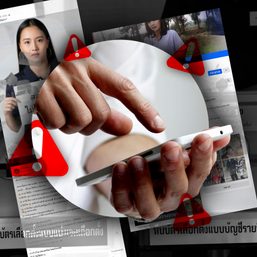
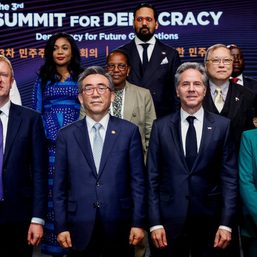
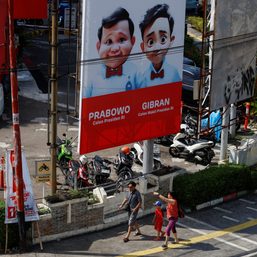

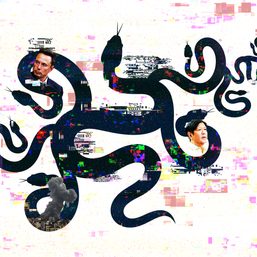
![[DECODED] The Philippines and Brazil have a lot in common. Online toxicity is one.](https://www.rappler.com/tachyon/2024/07/misogyny-tech-carousel-revised-decoded-july-2024.jpg?resize=257%2C257&crop_strategy=attention)



![[Rappler’s Best] US does propaganda? Of course.](https://www.rappler.com/tachyon/2024/06/US-does-propaganda-Of-course-june-17-2024.jpg?resize=257%2C257&crop=236px%2C0px%2C720px%2C720px)





![[Closer Look] ‘Join Marcos, avert Duterte’ and the danger of expediency](https://www.rappler.com/tachyon/2024/06/TL-trillanes-duterte-expediency-june-29-2024.jpg?resize=257%2C257&crop_strategy=attention)

![[Newspoint] A Freedom Week joke](https://www.rappler.com/tachyon/2024/06/20240614-Filipino-Week-joke-1.jpg?resize=257%2C257&crop_strategy=attention)

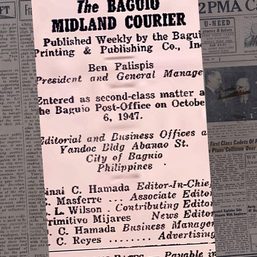
![[In This Economy] Marcos’ POGO ban is popular, but will it work?](https://www.rappler.com/tachyon/2024/07/thought-leaders-marcos-pogo-ban.jpg?resize=257%2C257&crop=255px%2C0px%2C720px%2C720px)
![[Rappler Investigates] POGOs no-go as Typhoon Carina exits](https://www.rappler.com/tachyon/2024/07/newsletter-graphics-carina-pogo.jpg?resize=257%2C257&crop=424px%2C0px%2C1080px%2C1080px)




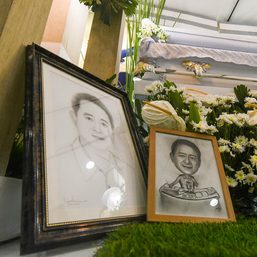
![[OPINION] You don’t always need a journalism degree to be a journalist](https://www.rappler.com/tachyon/2024/06/jed-harme-fellowship-essay-june-19-2024.jpg?resize=257%2C257&crop=287px%2C0px%2C720px%2C720px)






![[Just Saying] Ted Failon, press freedom, and the Supreme Court](https://www.rappler.com/tachyon/2024/07/20240709-ted-failon-press-freedom-supreme-court.jpg?resize=257%2C257&crop=296px%2C0px%2C720px%2C720px)

![[OPINYON] Tungkol sa naging viral na social media conjecture](https://www.rappler.com/tachyon/2024/07/thought-leaders-conjecture-07262024.jpg?resize=257%2C257&crop_strategy=attention)




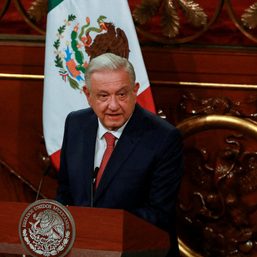


There are no comments yet. Add your comment to start the conversation.